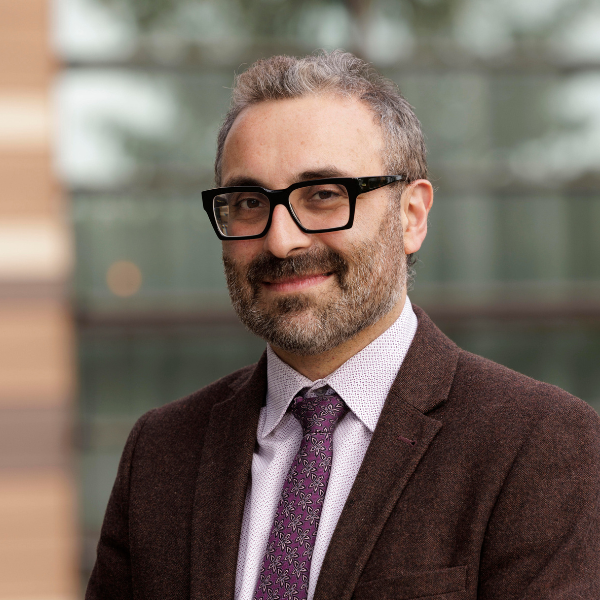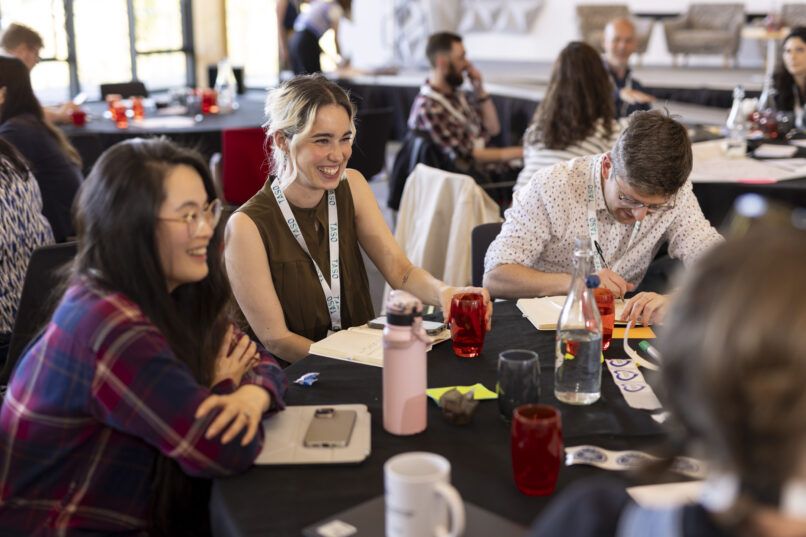
Note: This is an expanded version of an article first published on Research Professional News.

We held our fifth annual conference at the end of April, in unexpectedly warm sunshine at the University of Warwick. We heard from a wide range of speakers, on topics ranging from contextualised admissions and care-experienced students, through to financial challenges in the sector and how to continue to prioritise issues of inequality in the current political climate.
British higher education is an engine of knowledge production, which develops skills and economic growth, and offers wider social and cultural benefits too. To fully deliver these benefits, universities must be accessible to and benefit all those who wish to take part.
As outlined across our two-day conference, three different but related issues need addressing: how to implement measures to widen opportunity, how to evaluate them, and how to provide a more effective narrative around social mobility.
Evaluation matters
Evaluation is key. It is not enough to be committed to addressing unfairness or providing warm words; what matters in the end is whether what we’re doing is genuinely benefiting students.
From both TASO and external speakers, we heard how evaluation has improved across the sector and that senior leaders have committed to ensuring that efforts to address inequality are effective. In addition to outlining our evaluation activities, we also offered delegates an opportunity to learn from their peers at a ‘poster session’. Two separate panels addressed practical, real-world challenges to delivering implementation in our sector, and on how best to include student voice in those evaluations.
While it is fantastic to see the progress on evaluation over the past five years or more, it would be remiss not to recognise the wider sector challenges. South Bank University’s Pro Vice-Chancellor Zainab Khan discussed how we can make the argument for widening participation and evaluation – which can and must remain a priority – within the context of constrained financial resources in higher education. She advised on how best to frame that conversation, including developing cost-benefit cases and continuing to affirm the sector’s core commitment to equality and inclusion.
One driver behind the deepened commitment to evaluation is the regulator. When John Blake, the Director for Fair Access and Participation at the Office for Students, started in his role, he called for greater focus on evaluation. Four years on, he reflected on progress within the sector, and on the importance of paying attention to ‘null results’, where evaluation suggests an activity to address participation, or the student experience appears not to be working. The only way we are going to learn is to be reflective.
Falling participation
But despite progress, inequalities persist in terms of both access and student outcomes. Last year saw the first drop in the higher education participation rate of children eligible for free school meals (FSM) and an increased gap in participation rates between these children and their more advantaged peers. Over the past decade, FSM and non-FSM participation rates have mostly risen in parallel, meaning no change at all in relative social mobility – although with some improvement in absolute mobility.
This is particularly concerning given evidence on the impact of qualifications on the labour market. As a TASO report recently found, compared with their peers with no qualifications, FSM graduates are 20 percentage points more likely to be employed and earn up to £20,000 more at work. Addressing income inequality requires increasing higher education participation rates, a task that the pandemic and rising child poverty have made more difficult.
Evidence from our report on care-experienced learners, which lead author Leon Feinstein presented, further shows the extent of inequalities in higher education. Among care leavers, only 14% – and only 10% of male care leavers – end up attending higher education. These are shocking findings, compounding the inequalities these young people have already experienced.
One important finding from our care-experienced report is that while care leavers experience some of the largest inequalities, they are just a small part of a wider group of children who experience social care and whose outcomes are not much better.
These children have significantly worse outcomes in terms of participation rates, dropout rates and the likelihood of attending higher tariff institutions.Not only worse outcomes than the national average but also worse outcomes than those eligible for free school meals.
Campus experience
And it’s not just in accessing higher education that inequalities of opportunity persist. Some groups of students report worse outcomes than their peers on campus and in their courses, whether in terms of mental health, the ethnicity degree-awarding gap, the cost of living, or retention.
This leads to the second important point: the need to understand and explain how action to address inequalities in higher education is being delivered.
One consequence of more effective evaluation is more insight into which aspects of a particular intervention or activity are most effective, and which may need to be adapted.
At this year’s conference, we designed more time for peer learning. Among other discussions, delegates addressed the question of intervention design, and how to build theories of change that accurately describe but also inform any adaptations to how activities are delivered on the ground.
The final conference panel addressed contextualised admissions. As Jonathan Schulte from LSE explained, in Britain, contextualised admissions are applied on the basis of categories collected in the UCAS form. These can include care experience, POLAR [participation of local areas] quintile, index of multiple deprivation, participation in an access activity, and more recently, free school meals.
Contextualised admissions could be improved if universities had access to family income data as gathered by the Student Loans Company, as suggested by Vikki Boliver from the University of Durham. The panelists further noted that students admitted on contextualised offers have expressed concerns about the culture of higher education institutions, and that middle-class norms can result in a degree of ‘classism’ that hinders more disadvantaged students from achieving good outcomes. Building on this point, Lee Elliot Major argued that while necessary in the short to medium term, contextualised admissions are far from a silver bullet.
It is of course sensible to question contextualised admissions. But that criticism should address how they are delivered – for example, contextualised admissions in the UK do not include race or ethnicity. It should also focus on the ongoing inequalities students experience, which perhaps explains why whatever the critics argue almost three-quarters (72%) of students agree that higher education admissions should take account of applicants’ backgrounds.
Narrative drive
This leads to the third issue for higher education when it comes to addressing inequality: improving narratives. The public increasingly distrusts a range of institutions, including universities. Across liberal democracies, the gap in social attitudes between graduates and non-graduates is increasing. This gap is also driving political outcomes, as seen in the May 2025 local elections.
But it’s important to follow the evidence on public attitudes in the UK context. According to recent research, the British public is five times more likely to say that equality, diversity and inclusion policies are a good thing than they are to say they are bad.
As Tim Soutphommasane, Chief Diversity Officer at the University of Oxford – and one of the authors of this research – argued at the conference keynote, the UK is not the US and ‘culture war’ framing is far less popular here than it is there. At the same time, he cautioned that explaining and defending policies to address inequality and exclusion needs to be done better, using clearer and possibly simpler language.
The same study found that even though the public generally support equality, diversity and inclusion policies, around half worry about saying the wrong thing, and around seven in 10 are ‘made to feel stupid’ for not saying the right thing.
Class issues
For those of us committed to tackling inequality in higher education, the lessons are clear. We need committed, values-based support for equality of opportunity and diversity, but we need to ensure that that commitment is evaluated effectively. We also need to explain better and in plainer English that improving equality and inclusion in British higher education includes improving equality in terms of socio-economic class as well as addressing inequalities of race, gender and disability.
We need to extend some of the successes we’ve seen in access and participation to the student experience. And we should rebut arguments from those who have benefited from higher education but suggest that we needn’t expand it further or address inequalities of access.
In this context, it was heartening to hear from the Minister for Higher Education, Rt Hon Baroness Jacqui Smith, who opened the conference with a recorded speech. She explained how evaluation and addressing inequalities in higher education directly promote two of the government’s key missions: on opportunity and on economic growth. She thanked delegates for their commitment to building the evidence on what works to achieve these ambitions, and noted the government’s interest in the findings from the conference as well as the sector’s and TASO’s wider work.
Delivering on equality of opportunity needs to be evidence-based. But as one recent graduate, Amir Arian, said at the conference, we must use data not just to count but to care – to advance social mobility, improve people’s lives, enhance economic growth, and expand public support for higher education.
Knowledge may be the sector’s ultimate aim, but it must be accessible to and benefit everyone, regardless of their background or experiences, as a matter both of principle and of public legitimacy.
Omar Khan is Chief Executive Officer of TASO, Centre for Transforming Access and Student Outcomes in Higher Education.